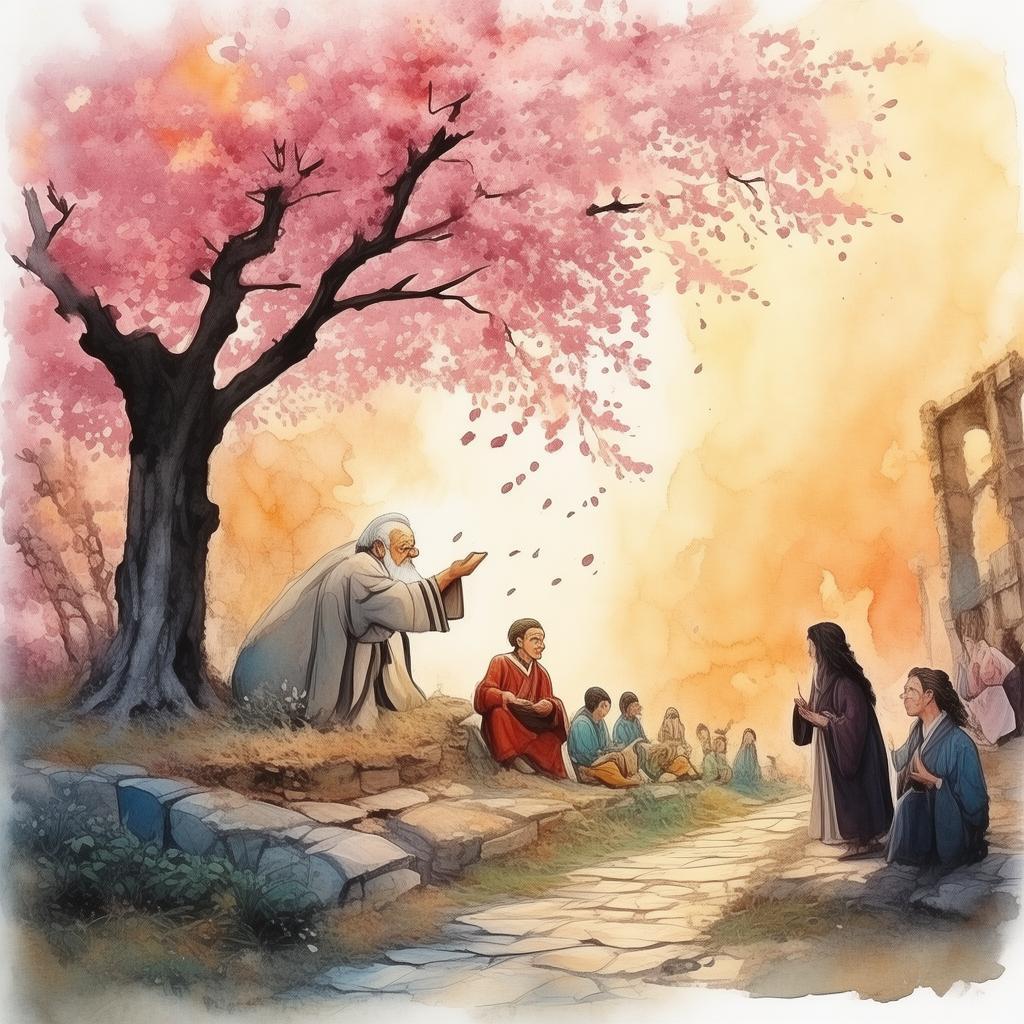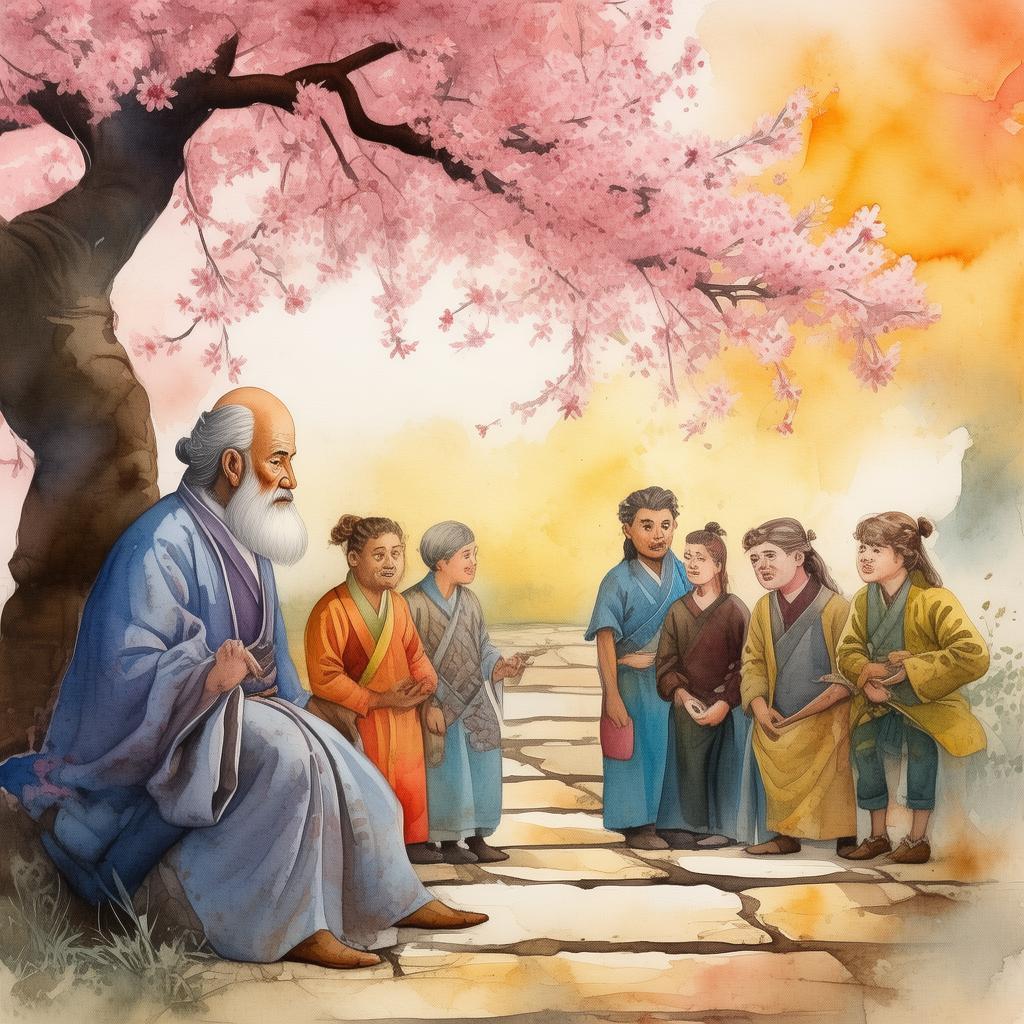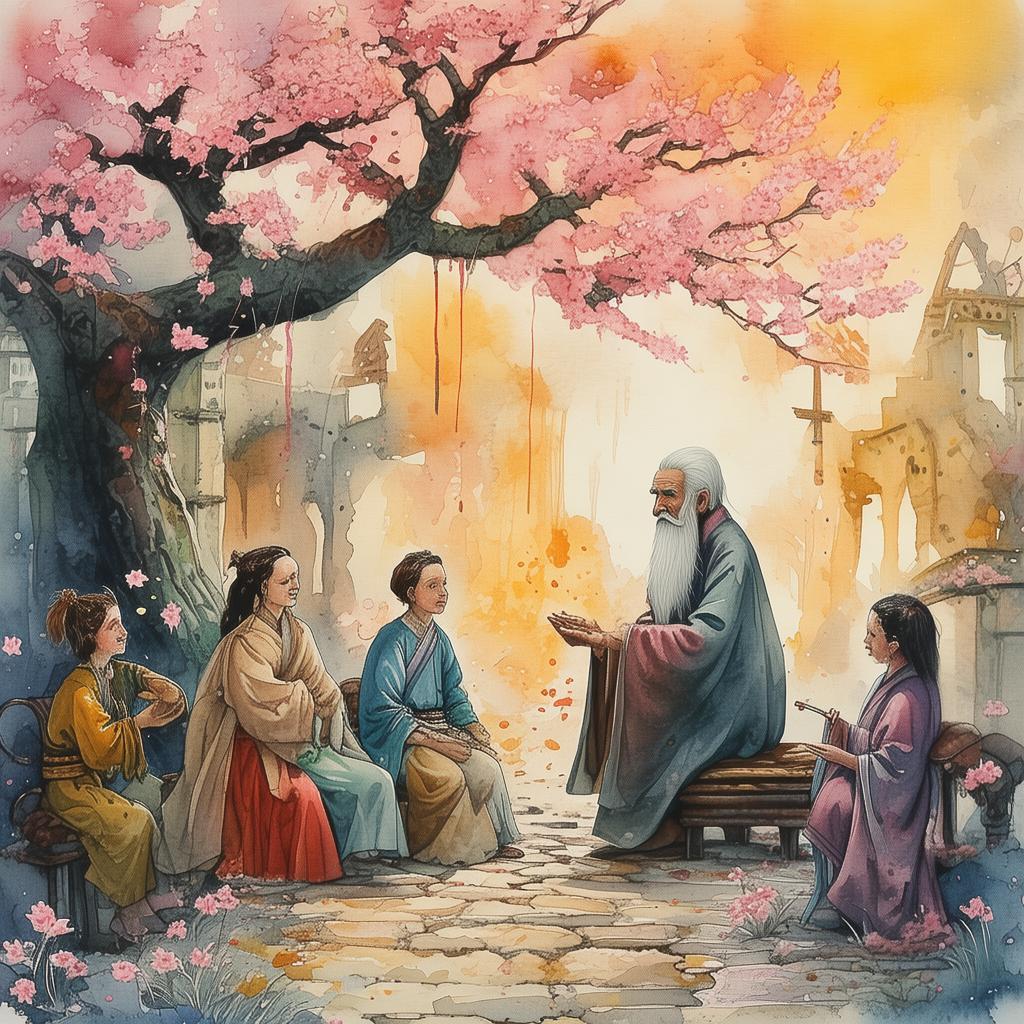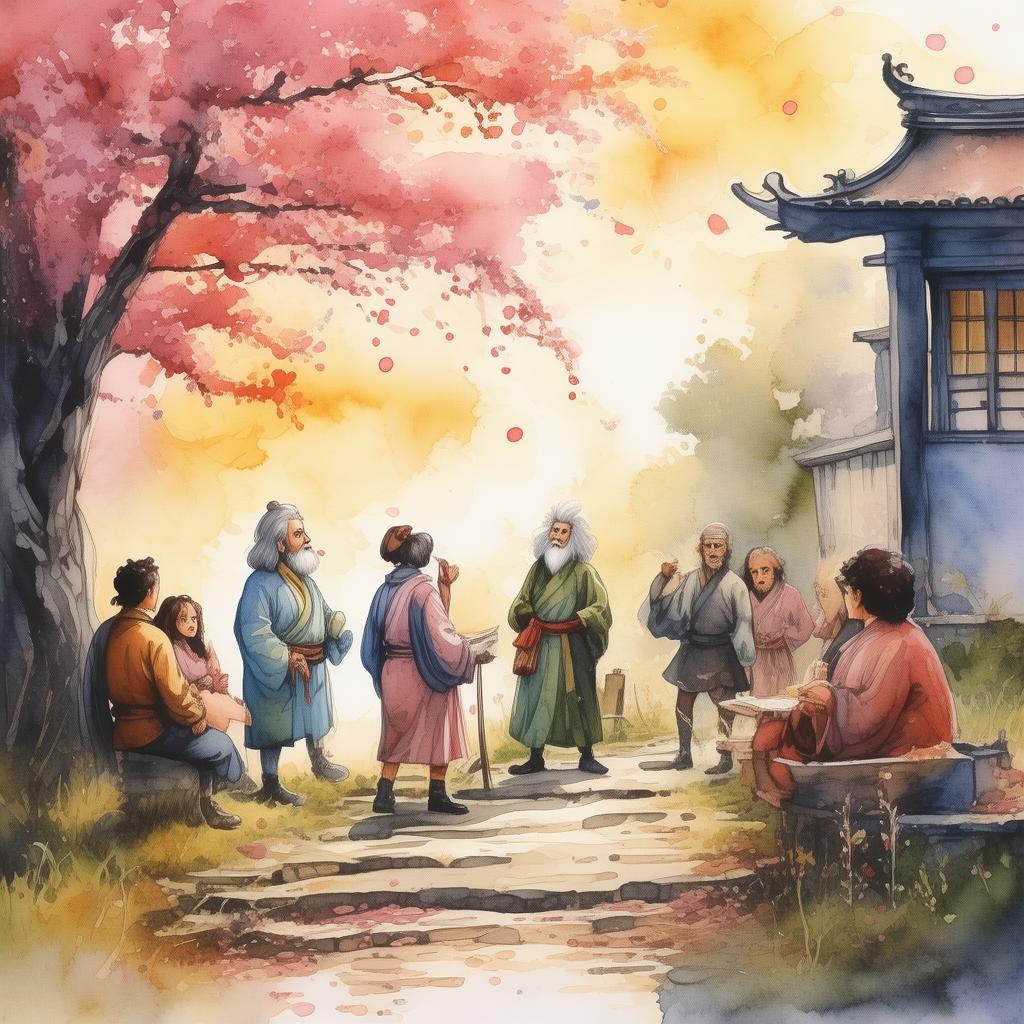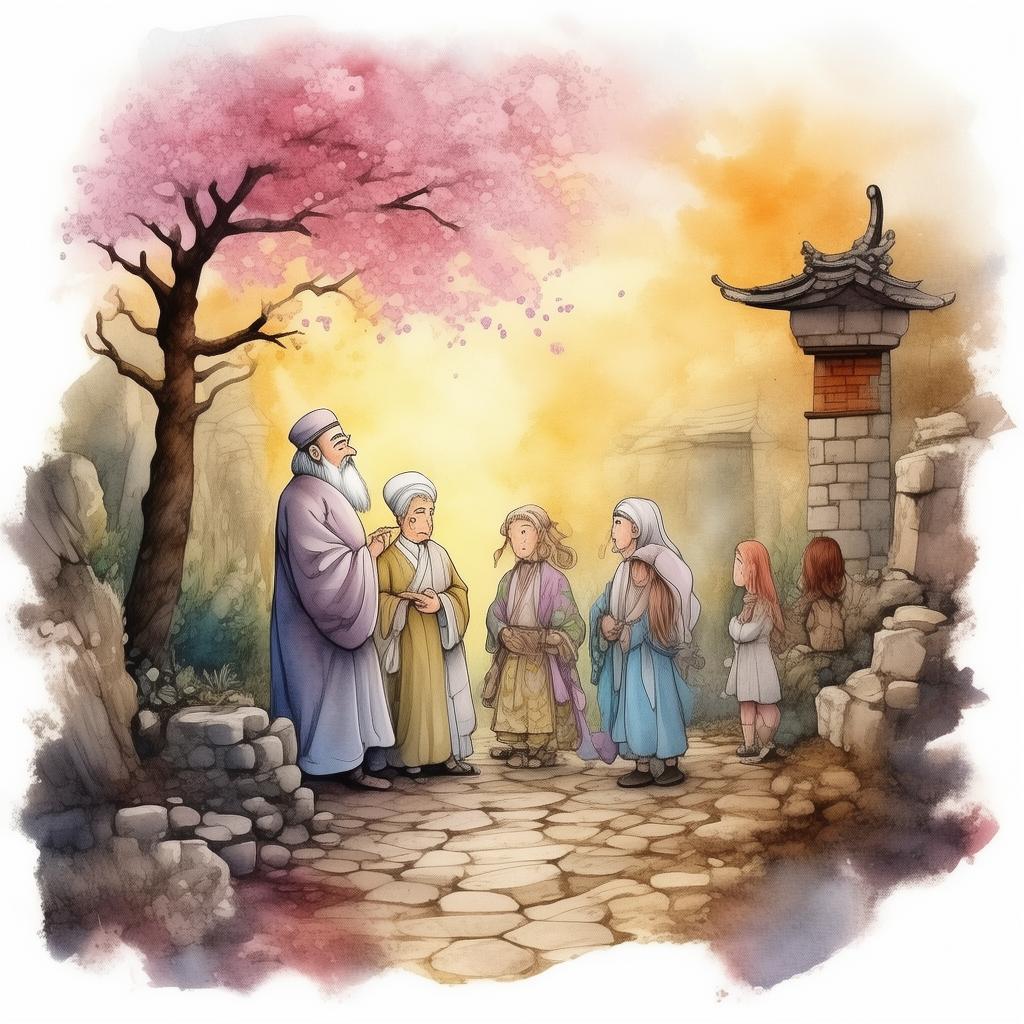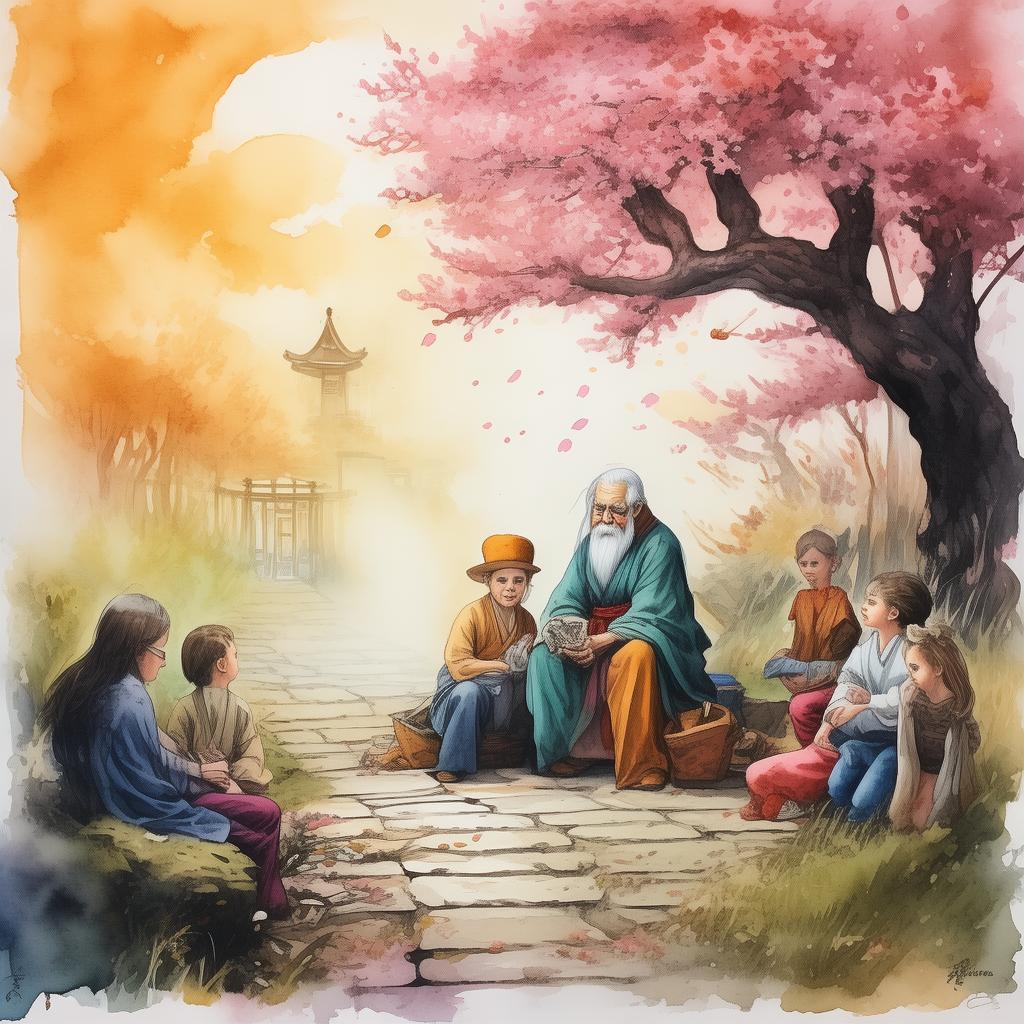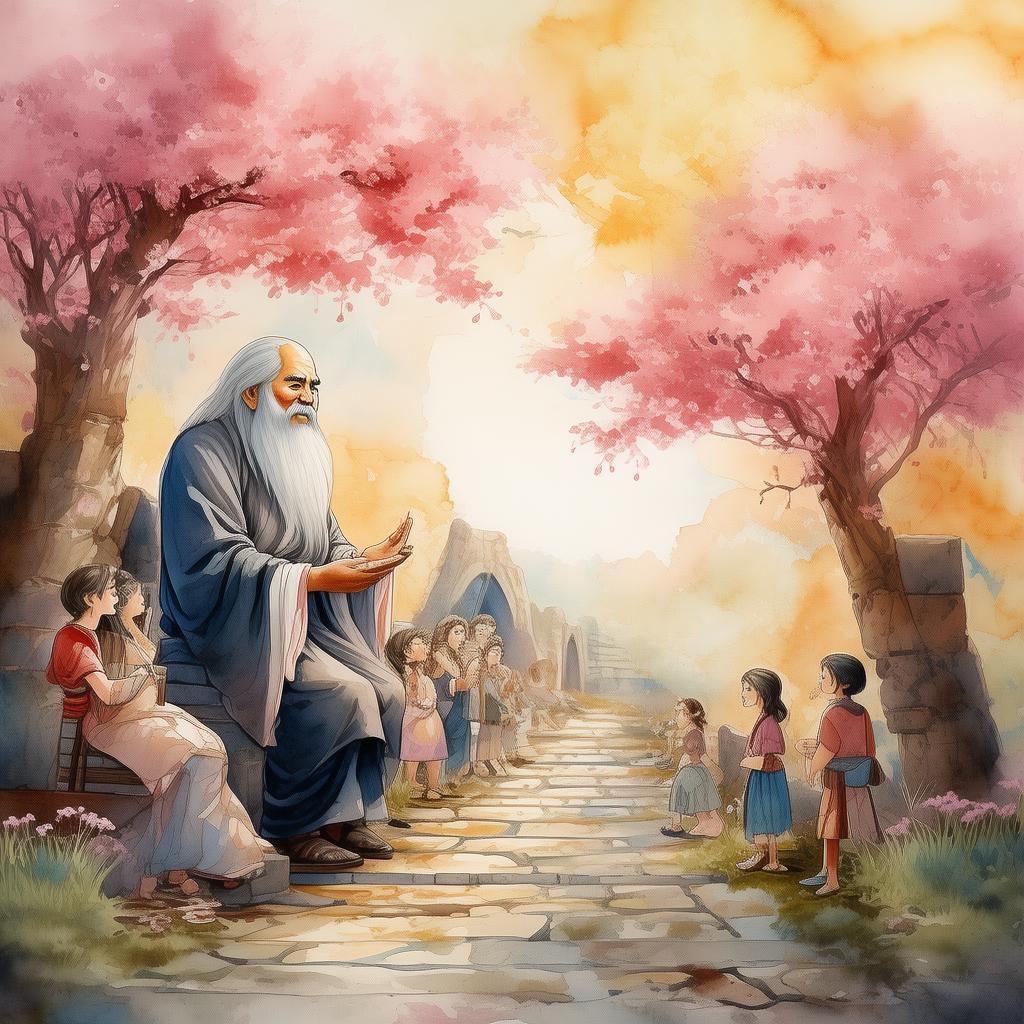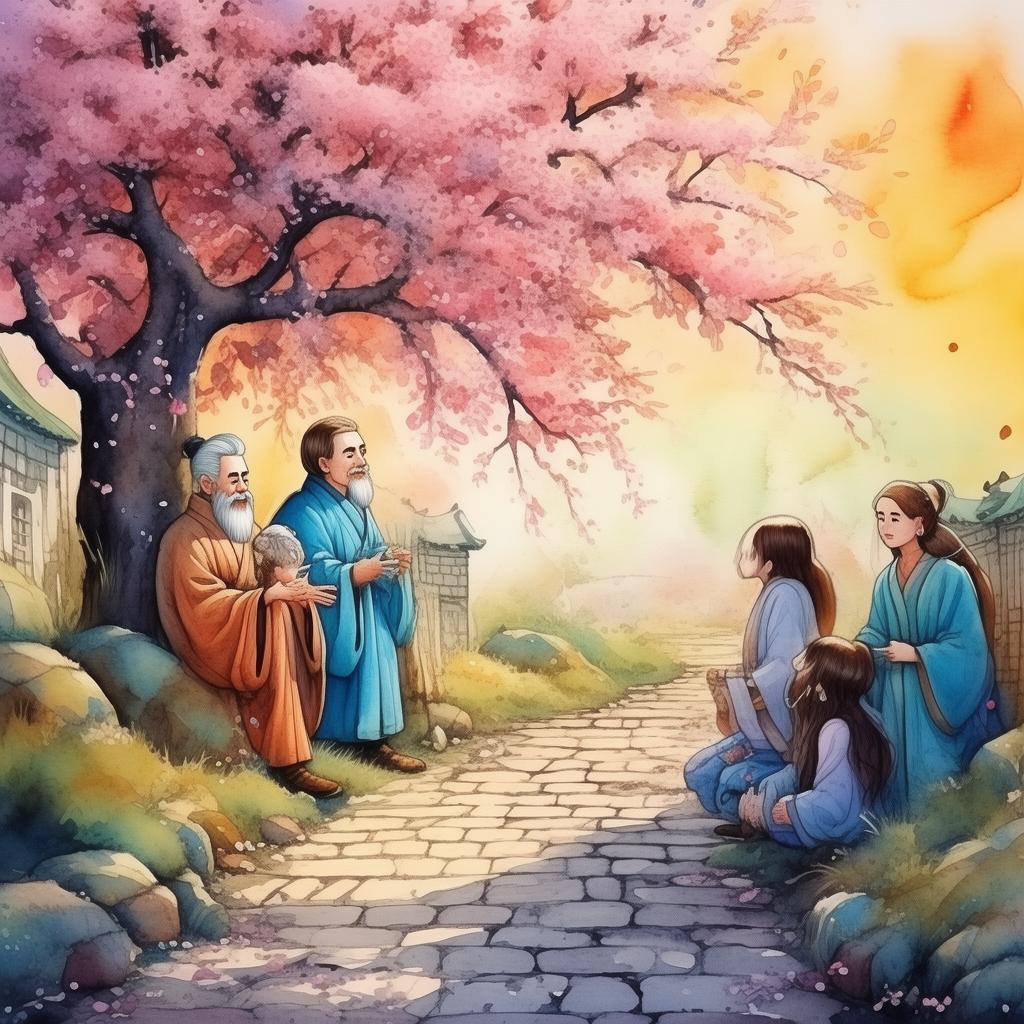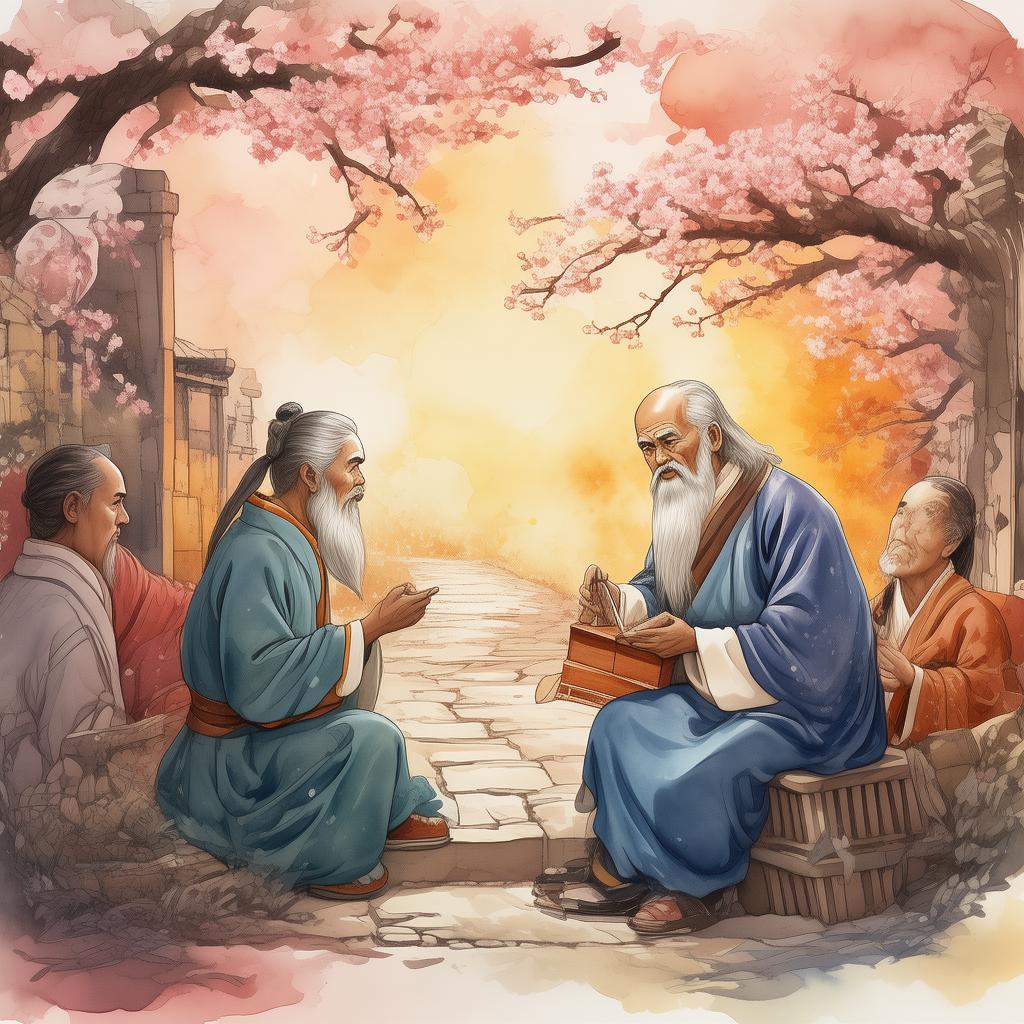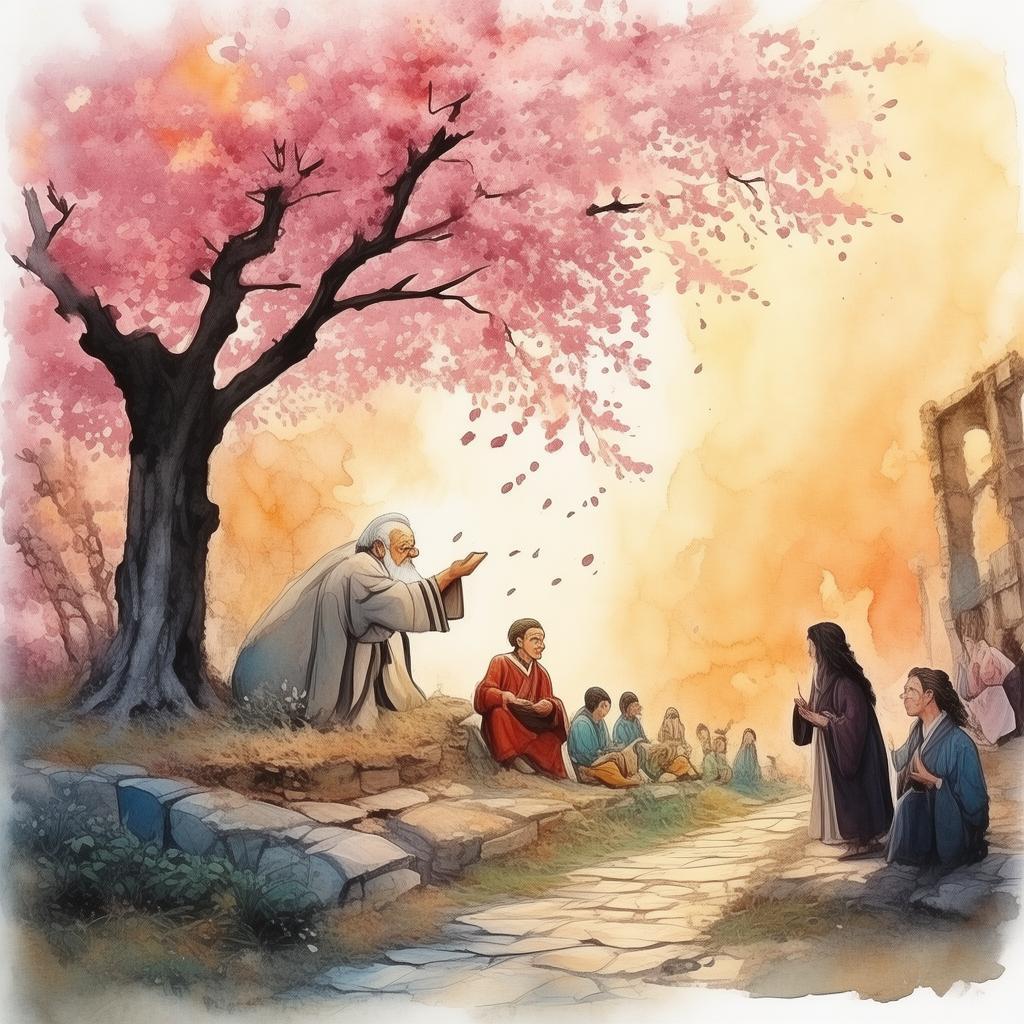Divine Resonance: The Celestial Union
In the heart of ancient China, during the Warring States period, the philosopher Confucius, known for his teachings on ethics, morality, and the importance of harmonious relationships, was walking through the bustling streets of Lu. The air was thick with the sounds of merchants hawking their wares, and the aroma of exotic spices filled the nostrils of the travelers. Confucius, with his long beard and flowing robes, was a striking figure among the throngs of people, his thoughts consumed by the complexities of the human condition.
One day, as he walked through the marketplace, he noticed a peculiar sight: a solitary figure sitting at the edge of the market square, surrounded by an aura of serene wisdom. This man, an elderly sage, was engrossed in reading an ancient scroll. The scroll was wrapped in a delicate silk cover, adorned with intricate patterns of the cosmos, hinting at its profound significance.
Curiosity piqued, Confucius approached the sage and, with a bow, asked, "Sir, I see you are deeply engrossed in the wisdom of the ages. May I inquire as to the nature of this scroll?"
The sage looked up, his eyes twinkling with a knowing light. "You may, Confucius. This scroll speaks of the Celestial Union, a tale of the divine that transcends the realm of mere mortals."
Confucius, ever the eager student, sat down and waited intently as the sage began to weave a tale of the divine. "In the beginning," the sage began, "there was a realm of the divine, where gods and spirits walked the earth, guiding the destiny of man. But as time passed, the human heart grew corrupt, and the divine decided to withdraw, leaving behind only riddles and parables to guide the way."
Confucius listened intently, his mind racing with questions. "And what of these riddles and parables? What do they tell us?"
The sage smiled, a hint of mischief in his eyes. "They tell us of the celestial order, the balance between the divine and the human. One such riddle," he continued, "asks: 'What is the greatest treasure that man can possess?' Many seek gold, or power, or fame, but none have found the true answer."
Confucius pondered the question, his mind wandering to the teachings he had imparted throughout his life. "I believe the greatest treasure is wisdom," he finally said, "for with wisdom comes the ability to discern right from wrong, to live a life of virtue."
The sage nodded, pleased with Confucius's answer. "Very well. Now, consider this: If you were to meet a divine being face-to-face, what would you ask them?"
Confucius thought for a moment, his face serious. "I would ask for guidance," he replied, "for wisdom to lead my people to a life of harmony and prosperity."
The sage smiled again, his eyes gleaming with a knowing light. "And what if the divine being asked you the same question? What would you answer?"
Confucius's eyes widened in realization. "I would ask them to share their wisdom with me, so that I might share it with my people."
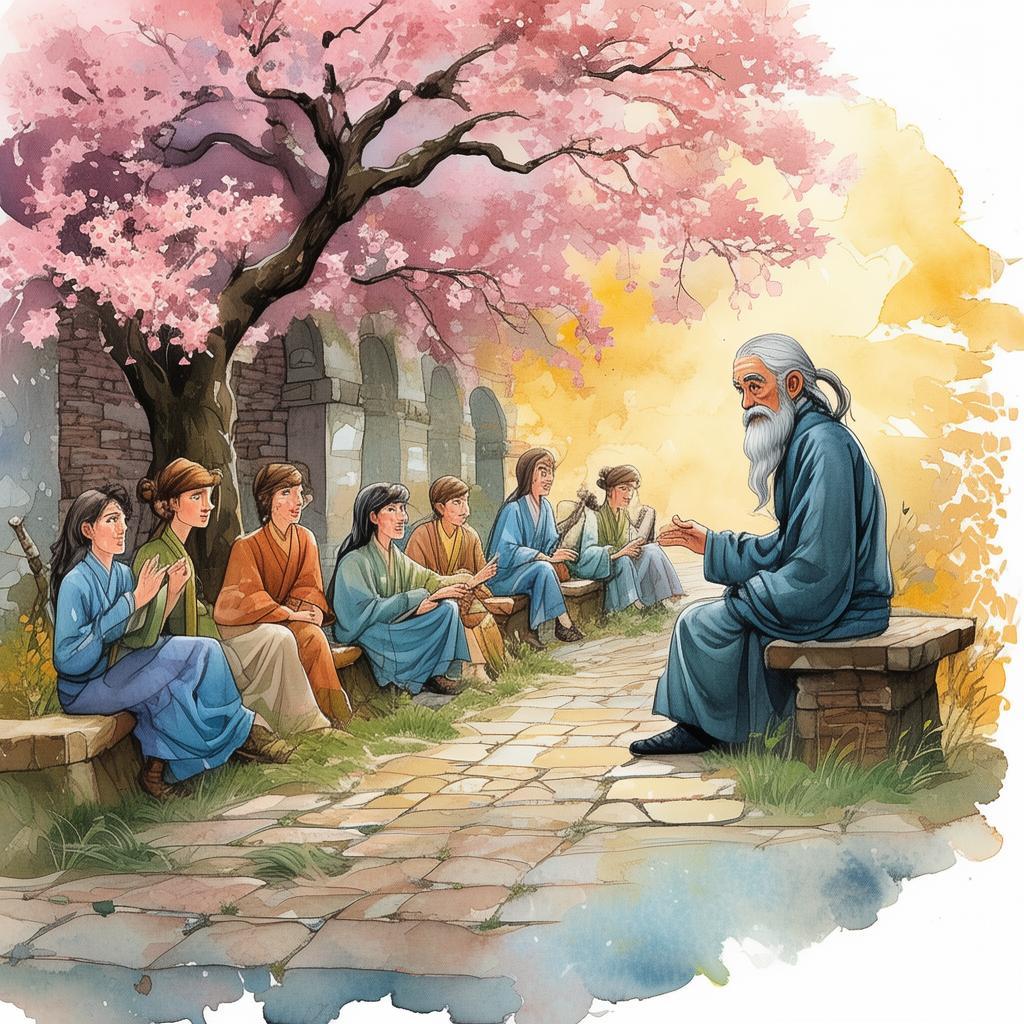
The sage's smile widened, and he began to unroll the scroll. "This riddle," he said, "is the heart of the Celestial Union. It speaks of the interplay between the divine and the human, of the responsibility each has to the other."
As the scroll unrolled, it revealed a series of moral parables, each more profound than the last. Confucius's eyes widened as he read the tales of gods and spirits intervening in human affairs, guiding them toward a path of righteousness.
The tale of the Celestial Union had a profound impact on Confucius. He realized that the divine was not just a force to be feared or worshipped, but a guiding force for the human spirit. He returned to his teachings, infusing them with a new sense of purpose, a desire to align human behavior with the celestial order.
Years passed, and Confucius's teachings spread far and wide, influencing the lives of countless people. His philosophy, grounded in the moral parables of the Celestial Union, became the bedrock of Chinese culture, a testament to the enduring power of wisdom and virtue.
The sage, having imparted his wisdom to Confucius, vanished as mysteriously as he had appeared. But the story of the Celestial Union, the tale of the divine and the human, lived on, a beacon of hope and guidance for all who sought to understand the mysteries of the universe.
In the end, it was not the treasure of gold or power that Confucius sought, but the treasure of wisdom. And it was this wisdom that he imparted to his people, ensuring that the story of the Celestial Union would never be forgotten.
✨ Original Statement ✨
All articles published on this website (including but not limited to text, images, videos, and other content) are original or authorized for reposting and are protected by relevant laws. Without the explicit written permission of this website, no individual or organization may copy, modify, repost, or use the content for commercial purposes.
If you need to quote or cooperate, please contact this site for authorization. We reserve the right to pursue legal responsibility for any unauthorized use.
Hereby declared.
